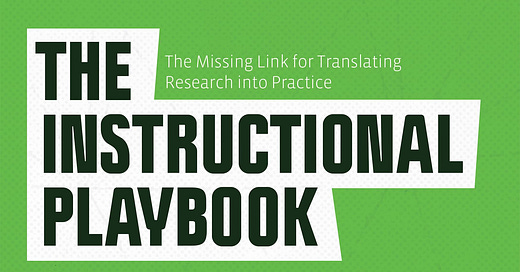If we are living in an age of educational polycrisis, marked by overlapping challenges such as mental health struggles, technological disruption, inequality, climate anxiety, and political polarisation, then a single, fixed approach to teaching and learning is unlikely to be as effective as we might hope. It risks assuming that classrooms are stable, linear, and disembodied spaces. Those are huge assumptions to make.
Traditionally, pedagogical approaches have focused on planning for a distant and particular future, often culminating in exam results or in some notion of readiness for adulthood or the world of work. That long-term view is not wrong, but in today's complex educational landscape, it is no longer sufficient. Pedagogy in a polycrisis must also be responsive, inclusive, and alert to the wider systems in which teaching and learning are entangled.
In recent years, I've come across the idea of 'playbooks' more frequently particularly while completing a strategy course, where I was tasked with developing one. At first, I was wary. Terms like these can feel like a buzzword, tossed around in meetings and job interviews to show that you are part of the 'in' group. However, completing the strategy course and also reading The Instructional Playbook by Jim Knight, Ann Hoffman, Michelle Harris and Sharon Thomas, challenged me to look again at the potential of this process, especially in the context of education.
Playing basketball as a youth, I am pretty familiar with the idea of a ‘playbook’. It is not a fixed or rigid plan and it doesn't prescribe one way of doing things. Instead, it offers a set of agreed-upon 'plays', thoughtful, context-aware responses to different scenarios, providing structure without rigidity, embedded in a recognition of the complexity and specificity of schools and classrooms. It is built on the understanding that classrooms are not psychology labs, students are not just 'brains in jars', and learning does not unfold in predictable, linear ways. A pedagogical ‘playbook’, when thoughtfully constructed, respects this reality.
One of the persistent challenges in teaching today is the assumption that a single pedagogical model will work across all contexts with anything outside that model left to teacher interpretation. That might work in certain environments, but in many cases, it results in inconsistency, uneven implementation, and a lack of strategic cohesion. By contrast, a playbook approach offers a way to recognise that different contexts call for different responses and supports people with planned adaptability within a clear organisational purpose. It could, in theory, encourage collaboration and collective intelligence rather than relying solely on the perspective of a single leader because colleagues would be able to contribute to the 'plays'. For me, one of the most compelling reasons for such an approach is that it also supports continuity of direction by helping to create institutional memory so that strategic direction is not lost when leadership changes. I've worked in several schools where a well-intentioned teaching and learning model was introduced with energy and optimism, only to disappear or be rewritten when the senior leader who championed it moved on. That lack of continuity is disruptive. It leads to staff fatigue and, ultimately, limits the intended impact.
None of this is to say that a ‘playbook’ is the only way to address the complexity of education. However, the approach and intent to offer a more thoughtful, organised, and dynamic codified collaborative document seems to me to be a better way than resorting to vague imperatives like 'reduce cognitive load'. Rather than simply asking, 'How can we improve educational outcomes for KS3/KS4/KS5/life?', we should also ask, 'Who or what else is shaping the educational journey?’ These two questions, taken together, provide a broader, more useful framework for rethinking how we lead, design, and sustain pedagogy in our increasingly complex and uncertain times. A ‘playbook’ may not be the answer, but a more comprehensive approach is needed. This is the kind of thinking the educational polycrisis demands.




